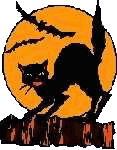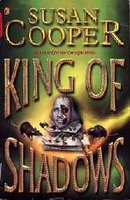The Ratastrophe Catastrophe - David Lee Stone
David Lee Stone's The Ratastrophe Catastrophe is the first in a projected series of books known as the Illmoor Chronicles. For the author, comparisons with the work of Terry Pratchett are inevitable. Pratchett is the leading comic fantasy writer in the UK, and he's a hard act to follow. It doesn't help that Pratchett has already done a very funny re-telling of the Pied Piper tale, The Amazing Maurice and His Educated Rodents
, of which I'm very fond. However, I decided to give The Illmoor Chronicles a read.
The Duke of Dullitch, capital city of Illmoor, is in some distress as reports are coming in that the city is being over-run by a plague of rats, and although he has killed off all witnesses, the problem is daily becoming more obvious. Unfortunately, His corrupt council, led by the ex-sorcerer Tambor Forestall, can offer no solutions to the problem, so Duke Modeset sends for mercenaries to rid the city of the rodent plague. Heralds are sent out into the countryside from every gate, each one hoping to bring back the saviour of the city. One of them discovers the flute-playing Diek Wustapha, who is a Charmer. Wustapha has recently been unwittingly inhabited by some wild magic and found himself inexplicably irresistible to girls, sheep - and various other animals. So Diek sets off for Dullitch to fulfil his task of charming away the rat plague. He's promised 1000 crowns for his troubles, but once the rats have gone, the council refuse to pay him because their Treasury is empty of anything except coal. Angry and still inhabited by the wild magic, Diek takes his revenge by charming the children of Dullitch out of the city, playing on his flute, and disappears with them into the mountains. The Duke finds himself facing a lot of angry parents, and Jimmy Quickstint, part-time herald, full-time thief, and inept grandson of Tambor is sent after Groan Teethgrit, a barbarian mercenary, and his partner Gordo Goldeaxe, a dwarf mercenary, with whom his grandfather has teamed up, to see if they can bring the children back.
The characters in The Ratastrophe Catastrophe were reasonably likeable, although I would have liked to see more development of them and I did feel that, after his initial introduction, the character of Diek was largely ignored and left to linger in the background; he didn't really do anything, and the concept of him struggling with the wild magic that inhabiting him was never developed.
As a first novel, this isn't a bad start, but Pratchett fans will probably view Dullitch as a poor-man's Ankh-Morpork, and Duke Modeset has nothing on the cunning Patrician who rules over Ankh-Morpork with great dexterity. However, I've hopes that the ideas behind the Illmoor Chronicles will be developed further as the series progresses - and I've the rest of the books in the series-so-far waiting to be read.
You can find out more about the Illmoor Chronicles on the website and David Lee Stone has recently begun his own Blog.
* * * * * *
There's a review of Diana Wynne Jones' Black Maria over on the Scholar's Blog Spoiler Zone.



